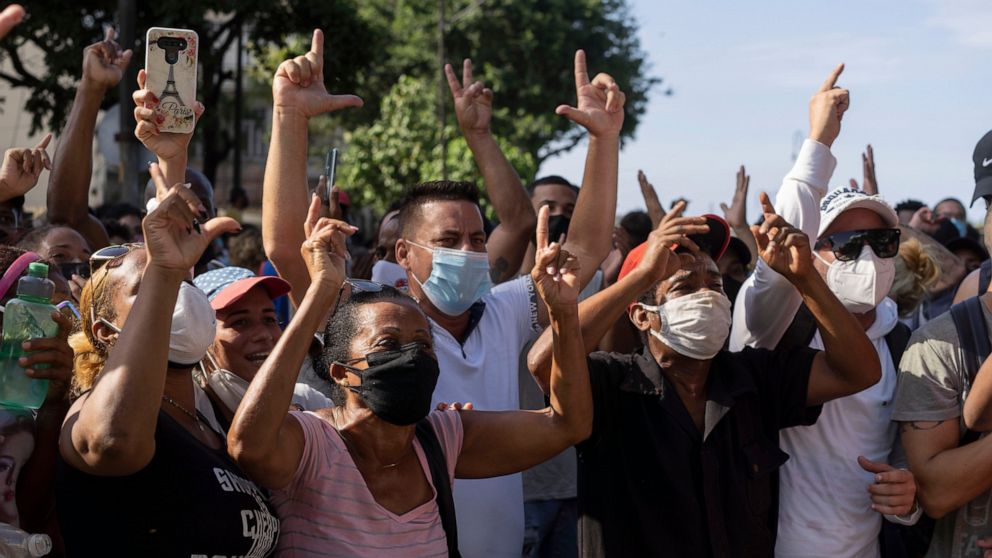
Cuba's internet cutoff: The go-to tactic for global despots
ABC News
Cubans facing the country’s worst economic crisis in decades took to the streets over the weekend
Cubans facing the country’s worst economic crisis in decades took to the streets over the weekend. In turn, authorities blocked social media sites in an apparent effort to stop the flow of information into, out of and within the beleaguered nation. Restricting internet access has become a tried-and-true method of stifling dissent by authoritarian regimes around the world, alongside government-supported disinformation campaigns and propaganda. On the extreme side, regimes like China and North Korea exert tight control over what regular citizens can access online. Elsewhere, service blockages are more limited, often cutting off common social platforms around elections and times of mass protests. On Monday, Cuban authorities were blocking Facebook, WhatsApp, Instagram and Telegram, said Alp Toker, director of Netblocks, a London-based nonprofit internet monitoring group. “This does seem to be a response to social media-fueled protest,” he said. Twitter did not appear to be blocked, though Toker noted Cuba has the ability to cut it off if it wants to. Toker noted that while the recent easing of access by Cuban authorities to the internet has increased social media activity, the level of censorship has also risen. Not only does the cutoff block out external voices, he said, it also squelches “the internal voice of the population that wanted to speak out.”More Related News
